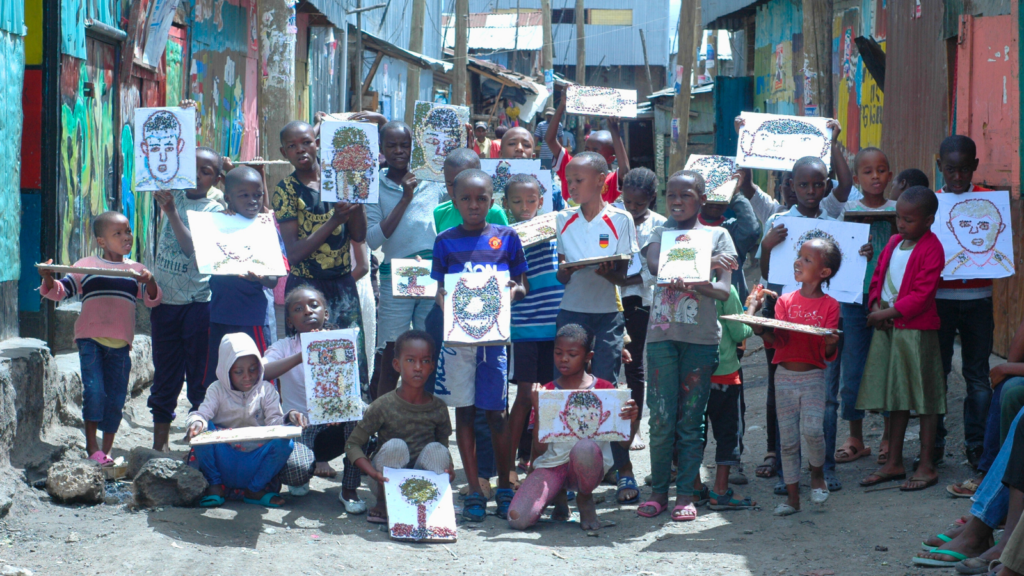Wajukuu Art Project
The Wajukuu Art Project was started in 2004 to create a opportunities for class mobility for impoverished children living in the slum district, Mukuru in Nairobi, Kenya. According to Wajukuu, the slums of Mukuru reside below the industrial area of Nairobi. When the rain season is heavy, toxic pollutants from the industrial area’s factories are essentially dumped into the slums in Mukuru and into the Ngong River. Once a fresh and clean community resource, the river now runs opaque with sewage and garbage. Excluded from employment at the very factories that pollute their community, the youth of Mukuru typically take to scavenging for items to sell in the polluted area. Because of this systemically enforced cycle of poverty and bad health, many children eventually turn to crime and selling drugs. Violence and sexual assault are very commonplace in Mukuru, jeopardizing the health, wellbeing, and lives of many young victims. From this landscape of near hopelessness emerged Wajukuu Art Project, a testimony to resilience and the capacity of people to transmute suffering into beauty.
Wajukuu is a community-run organization that uses art to connect to the children of Mukuru. The collective aims to make Mukuru a place where children can thrive by teaching youth the technical skills they need to create employment opportunities for themselves in the years to come. Through art classes taught by professional artisans and artists, Wajukuu empowers children and youth to use art to connect with their heritage, cope with challenges they face in their home and community, speak out against injustices levied upon them, and envision alternative futures for themselves. Through art and education, Wajukku strives to break cycles of intergenerational trauma, substance abuse, and dangerous labor practices (like prostitution, crime, and drug-dealing). By creating better employment opportunities for the youth of Mukuru and cultivating their artistic skills, new generations emerge from the slums of Nairobi with a solidified sense of self-worth and increased chances of class mobility.

City
Country
Region
Year of Creation
Featured Project

Resources
Bowyer, Connor, et al. “Using Creative Methods for Public Health Messaging.” 2024. Chicago.
Constance, Olayinka, Velaphi Dudu, Noluthando Thabethe, Kate Ashworth, and Peter Young. “Air Pollution in Emerging Mega‑Cities: Sources, Evolution and Impacts Workshop.” Clean Air Journal, vol. 28, no. 2, 2018, pp. 1–10.
McEwan, Claire, Liliana Szablewska, Kendra V. Lewis, and Lilian M. Nabulime. “Public‑Making in a Pandemic: The Role of Street Art in East African Countries.” Political Geography, vol. 98, 2022, article 102692.
Interviews & Web Sources:
Mwangi, Shabu, and Ngugi Waweru. Interview by Chiara Borgonovo. “Wajukuu Art Project: Shabu Mwangi and Ngugi Waweru.” OnCurating, issue 54, Nov. 2022, https://on-curating.org/issue-54-reader/wajukuu-art-project-shabu-mwangi-and-ngugi-waweru.html.
“Wajukuu Art Center.” Shabu Mwangi. https://www.shabumwangi.com/wajukuu-art-center.
“Wajukuu Art Project.” documenta fifteen, https://documenta-fifteen.de/en/lumbung-members-artists/wajukuu-art-project/.
More Information
IMPORTANT: Profile pages for all collectives are in permanent development and have been built using information in the public domain. They will be updated progressively and in dialogue with the organizations by the end of 2024. New features and sections will be included in 2025, like featured videos, and additional featured projects. Please contact us if you discover errors. For more information on mapping criteria and to submit your organization’s information to be potentially included in the database, visit this page

